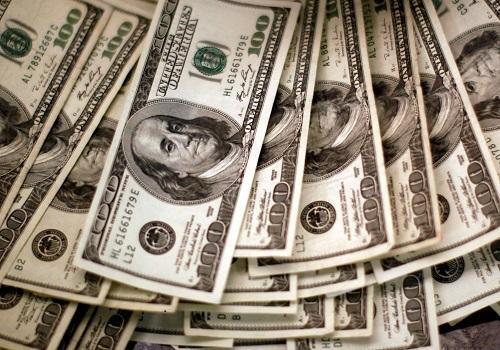
Yen Slumps, Dollar Jumps as Rate Cut Bets Recede
The foreign exchange market witnessed a significant shift on Thursday, with the US dollar surging to its highest level in weeks and the Japanese yen plummeting to a 10-month low. This sudden change in fortunes for the two currencies was largely driven by the release of the Federal Reserve’s minutes, which suggested that a rate cut in December was less likely than previously thought. As a result, the dollar was riding high, while the yen tumbled on bets that the Japanese government would not immediately intervene to stem its weakness.
The yen dropped by over 1% to a 10-month low of 157.18 per dollar, marking its sharpest decline in several weeks. This downward spiral was further exacerbated by the lack of any foreign exchange talks with the Bank of Japan (BOJ), which had been expected to take steps to support the struggling currency. The BOJ’s inaction led to a surge in speculation that the Japanese government was willing to tolerate a weaker yen, at least for the time being.
On the other hand, the US dollar was the major beneficiary of the Fed’s minutes, which showed that policymakers were more optimistic about the US economy than previously thought. The minutes revealed that several Fed officials believed that the current interest rates were sufficient to support the economy, and that a rate cut in December was not necessarily a done deal. This led to a sharp increase in the dollar, as investors bet that the Fed would keep interest rates steady, or even raise them, in the coming months.
The dollar’s gain was its sharpest in six weeks, and it marked a significant reversal of fortunes for the currency. Just a few weeks ago, the dollar was struggling to gain traction, as investors were betting on a rate cut in December. However, the Fed’s minutes have changed the narrative, and the dollar is now riding high on expectations of a stronger US economy.
The yen’s weakness, on the other hand, is a cause for concern for Japanese policymakers. A weak yen can be beneficial for the country’s exports, but it can also lead to higher import costs and inflation. The Japanese government has been under pressure to intervene in the foreign exchange market to support the yen, but so far, it has resisted the temptation to do so.
The lack of intervention from the Japanese government has led to speculation that it is willing to tolerate a weaker yen, at least for the time being. This has led to a surge in bets against the yen, with many investors expecting the currency to continue its downward spiral. However, it is worth noting that the Japanese government has a history of intervening in the foreign exchange market to support the yen, and it is possible that it may take steps to do so in the coming weeks or months.
The impact of the yen’s weakness and the dollar’s strength will be felt across the globe, with many countries and companies having significant exposure to the two currencies. For example, Japanese exporters will benefit from the weak yen, as it makes their products cheaper and more competitive in the global market. On the other hand, importers will struggle with higher costs, which could lead to higher prices for consumers.
In conclusion, the sudden shift in the foreign exchange market has significant implications for investors and policymakers around the world. The dollar’s surge and the yen’s plunge are a result of the changing expectations about interest rates and the global economy. As the situation continues to evolve, it is essential to keep a close eye on the developments in the foreign exchange market, as they can have far-reaching consequences for the global economy.
For more information on this topic, please visit: https://investmentguruindia.com/newsdetail/yen-slumps-dollar-jumps-as-rate-cut-bets-recede657661
News Source: https://investmentguruindia.com/newsdetail/yen-slumps-dollar-jumps-as-rate-cut-bets-recede657661





